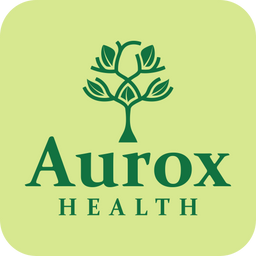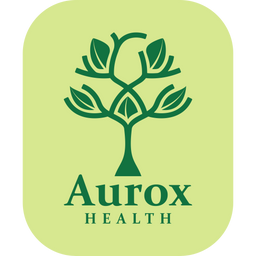Health supplements are products that are taken orally with the intention of providing additional nutritional benefits. They can come in many forms including:
-
pills
-
tablets
-
capsules 💊
-
softgels
-
powders liquids
Many people take health supplements to make sure they are getting all the nutrients they need, especially if they have a specific health condition or concern. Some common vitamins and minerals that are often taken as supplements include vitamin D, calcium, iron, and omega-3 fatty acids.
While health supplements can provide some great benefits, it’s important to remember that they are not regulated by the FDA in the same way as medications. This means that there is no guarantee of their safety or effectiveness. It’s always best to speak with your doctor before starting any new supplement, especially if you have a medical condition or are taking other medications.
I. Supplements are Necessary for Good Health
There are many health supplements on the market today. Picking the right ones can be tricky, but it’s important to do your research to make sure you’re taking the best possible care of your body.
Health supplements are designed to fill in the gaps that our diet may not provide. For example, many of us don’t get enough vitamins and minerals from our food, so we need to take a supplement to make up for that deficiency.
Not getting enough of certain nutrients can lead to serious health problems down the road. That’s why it’s so important to make sure you’re taking the right supplements for your individual needs.
If you’re unsure about which supplements you should be taking, talk to your doctor or a registered dietitian. 👩⚕️
II. Potential Dangers of Neglecting Food Supplementation
As we get older, our bodies go through changes that can put us at risk for a number of health problems. One way to help reduce the risks is to take health supplements.
There are a number of different supplements that can help improve our health as we age. Some of the most important ones include vitamins D and C, calcium, and omega-3 fatty acids. Vitamin D helps to keep our bones strong and prevent osteoporosis. Vitamin C helps to protect our cells from damage and boosts our immune system. Calcium helps to keep our bones and teeth healthy. Omega-3 fatty acids help to reduce inflammation throughout the body.
Not getting enough of these nutrients can put us at risk for a number of health problems. For example, lack of vitamin D can lead to osteoporosis, while not adequate level of vitamin C can increase our risk for infections.
There are a few potential risks associated with not taking health supplements, including: ⚠
-
You may not be getting all the nutrients your body needs.
When it comes to vitamins and minerals, you may not be getting all the nutrients your body needs -- if you're not taking supplements. This is because the body can only absorb a certain amount of these nutrients from food. The rest is excreted through urine or stored in fat tissue.
This can lead to deficiencies in vitamins and minerals, which can lead to a range of health problems. For example, if you're not getting enough vitamin C, you may be more susceptible to colds and infections.
Supplements can help ensure that you're getting the recommended daily intake of essential nutrients. However, it's important to talk to your doctor before taking any supplements, as they can interact with medications you may be taking and cause unwanted side effects.
-
You may be missing out on important health benefits.
You may be missing out on important health benefits if you're not taking health supplements. For example, supplements can help fill nutrient gaps in your diet, which is important since most of us don't eat the recommended daily amounts of fruits and vegetables.
In addition, supplements can provide nutrients that you may not be getting enough off from food alone, such as calcium for strong bones. Another example is omega-3 fatty acids that have been shown to reduce inflammation and improve heart health. They can also help protect against certain chronic diseases, such as heart disease and cancer.
Certain supplements have been shown to provide health benefits. If you're not taking supplements, talk to your doctor about whether they could benefit you.
-
You may be increasing your risk of certain diseases.
You may be increasing your risk of certain diseases if you're not taking health supplements. For example, a lack in vitamin D has been linked to an increased risk of cancer. Vitamin D is found in food sources such as fatty fish, eggs and dairy products, but it's also available as a supplement.
Not getting enough of other vitamins and minerals has also been linked to an increased risk of disease. Calcium, for example, is an important mineral that helps build and maintain strong bones. If you're not getting enough calcium in your diet or from supplements, your risk of osteoporosis and other bone-related conditions may be increased. On the other hand, a lack of iron can lead to anemia.
Supplements can help you get the nutrients you need, but they're no substitute for a healthy diet. Be sure to eat plenty of fruits, vegetables and whole grains, and talk to your doctor about which supplements are right for you.
-
You may be increasing your risk of a nutrient deficiency.
You may be increasing your risk of a nutrient deficiency if you're not taking health supplements. Nutrient deficiencies can lead to serious health problems, including anemia, joint pain, osteoporosis, and heart disease. If you're not getting enough of certain nutrients from your diet, you may need to take supplements to fill the gaps. Talk to your doctor about which supplements are right for you.
III. The Five Most Critical Illnesses Caused, Among Others, by Inadequate Nutrient Supply to the Human Body.
Here is a list of the worst diseases that could potentially be linked to a lack of supplements:
1. Heart disease

Heart disease is one of the leading causes of death in the United States, and it’s a serious problem that should not be ignored. According to the New York State Department of Health, about 697,000 people die from heart disease in the United States every year. That’s one in every five deaths. ☠
Heart disease is a general term used to describe a number of different conditions that affect the heart, including coronary artery disease, heart failure, and arrhythmias. These conditions can lead to a heart attack or stroke.
There are many risk factors for heart disease, including high blood pressure, high cholesterol, diabetes, smoking, obesity, and family history. Some of these risk factors can be controlled with lifestyle changes or medications. Others, like family history, cannot be changed.
Many people do not realize that heart disease can be a risk of not taking health supplements. Health supplements can help to reduce the risk of heart disease by providing the body with essential nutrients that it may not get from diet alone.
There are a variety of different health supplements available on the market today. Some of the most popular and effective supplements for reducing the risk of heart disease include fish oil, CoQ10, and magnesium. ❤
Fish oil is rich in omega-3 fatty acids, which have been shown to reduce inflammation and improve heart health. CoQ10 is an important antioxidant that helps to protect the heart from damage. Magnesium is known for its ability to relax blood vessels and reduce stress levels.
2. Diabetes
When it comes to diabetes, there are a lot of things that can go wrong. One of the most serious risks is not taking health supplements. When people with diabetes don't take their supplements, they're more likely to develop complications like heart disease and kidney disease.
There are a few reasons why people with diabetes might not take their supplements. Sometimes, people forget to take them or they just don't think they need them. But even if you're taking your insulin or other diabetes medications, you still need to take your supplements. That's because supplements help your body absorb nutrients and keep your blood sugar levels in check. 🩸
If you're not sure whether you should be taking health supplements, talk to your doctor. They can help you figure out which ones are right for you and make sure you're getting all the nutrients you need.
3. Obesity

There are many risks associated with not taking health supplements, but one of the most significant is obesity. Obesity is a major risk factor for a number of chronic diseases, including heart disease, stroke, and type 2 diabetes. In addition, obese individuals are at increased risk for certain types of cancer, such as endometrial cancer and colon cancer.
Health supplements can help to prevent or treat obesity by providing nutrients that may be lacking in the diet. For example, some health supplements contain fiber which can help to regulate hunger and promote weight loss. Other nutrients like omega-3 fatty acids and green tea extract have been shown to boost metabolism and promote fat burning.
If you are struggling with obesity, or if you are at risk for developing obesity-related chronic diseases, consider adding health supplements to your diet.
4. Osteoporosis
While there are many vitamins and minerals our bodies need in order to function properly, some people choose not to take health supplements. While this may not seem like a big deal, there are actually several risks associated with not taking health supplements, especially when it comes to osteoporosis. 🦯
Osteoporosis, characterized by weakened bones susceptible to fractures, is often linked to a deficiency in vital nutrients like Calcium and Vitamin D, which are crucial for bone health. Supplements can act as a preventive strategy, providing the necessary nutrients to maintain bone density and strength, effectively reducing the risk of osteoporosis.
5. Digestive problems

There are a number of digestive problems that can be caused by not taking health supplements.
These include:
-
constipation,
-
diarrhea,
-
and irritable bowel syndrome (IBS).
Constipation is a condition in which there is difficulty in passing stools. This can be caused by a lack of fiber in the diet. Fiber helps to add bulk to the stool and makes it easier to pass. A lack of fluids in the diet can also contribute to constipation.
Diarrhea is another digestive problem that can be caused by not taking health supplements. This is usually due to a lack of fluids in the diet, but it can also be caused by certain medications or infections. 💩
IBS is a condition that affects the large intestine and causes abdominal pain, bloating, and diarrhea or constipation. IBS can be aggravated by stress, dietary triggers, and medications.
IV. Conclusion
It’s no secret that vitamins and minerals are essential to good health. They help our bodies function properly, and when we don’t get enough of them, we can end up with some pretty serious health problems.
There are many risks associated with not taking health supplements, including deficiency-related diseases, impaired physical and cognitive function, and increased mortality. Supplementation can help to prevent these risks and improve overall health.





